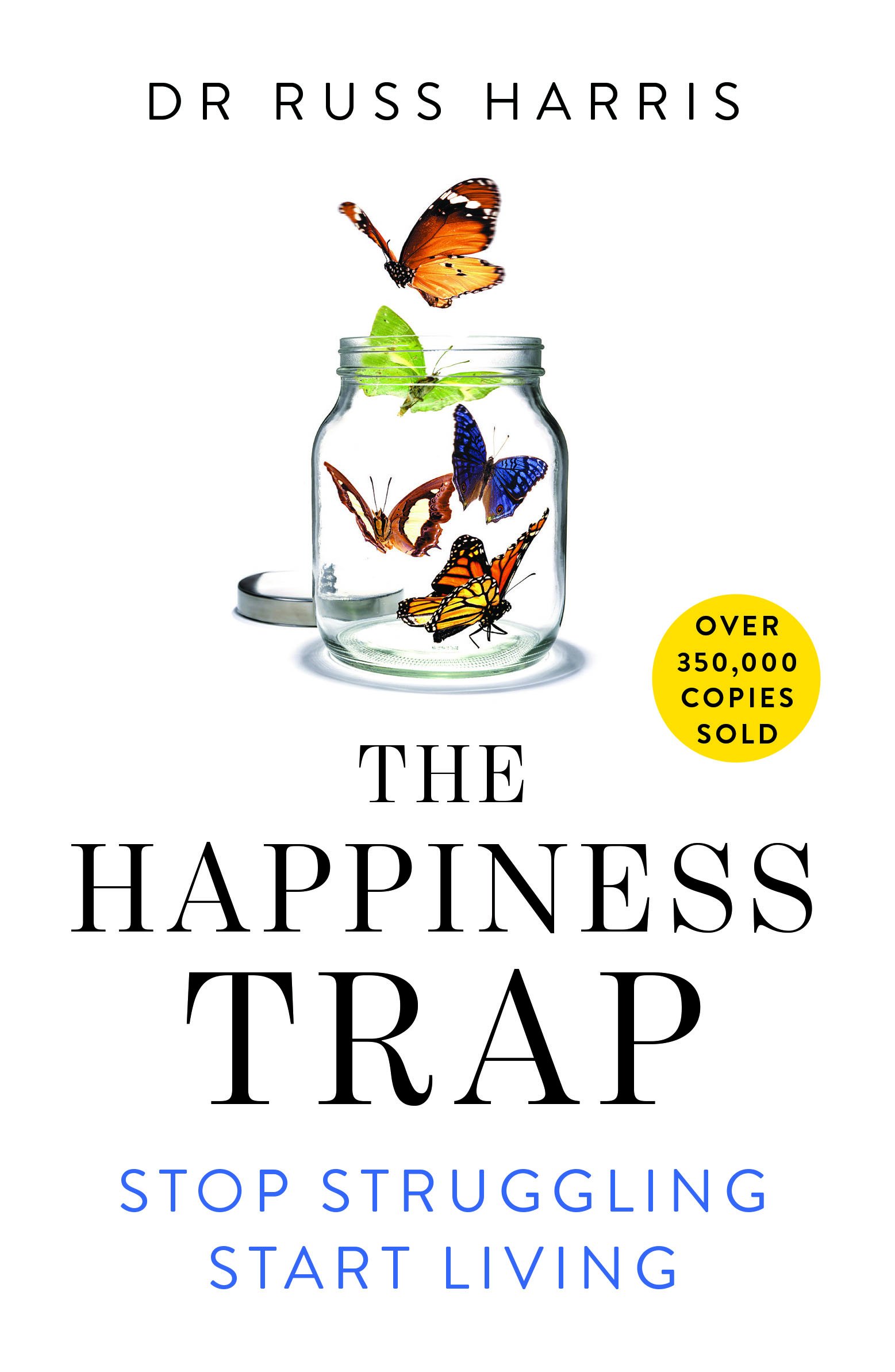Deliver to Czech Republic
IFor best experience Get the App


The Happiness Trap: Stop Struggling, Start Living
Description
The Happiness Trap: Stop Struggling, Start Living
Reviews
R**L
Loved it, must read!
Exploring a wide range of #SelfHelpBooks, I've found "The Happiness Trap" by Dr. Russ Harris to be a standout. This book addresses the misconception surrounding #Happiness in today's culture and its impact on our lives.Dr. Harris emphasizes the importance of embracing a full spectrum of emotions, including happiness, sadness, and anxiety. #TheHappinessTrap is a practical guide that provides strategies for navigating complex thoughts and feelings, ultimately leading to a more balanced and fulfilling life.If you're seeking actionable insights in self-help, this book is a must-read. #EmbraceEmotions #MentalWellness #PersonalGrowth
A**S
very interesting
Very good book!! I would recommend it to everyone struggling with overthinking.
A**R
A Bridge Between Spirituality & Psychology
For me this book serves as a very practical guide to, as the name suggests, living a happy life.I spent 5 years in the military and at the age of 25 left and realised that I didn't really know how to live a happy life. I'd had the job and money but still felt 'unfulfilled', what next.I travelled for 3 years and spent 2 of those years learning about and incorporating Buddhism into my life.Buddhism provided a lot of clarity in life for me as well as extremely useful 'habits' that have improved my quality of life greatly.However, once I returned to the UK I found myself feeling unhappy and unfulfilled once again. Reading Russ's book has helped me understand a lot of the why's to this and be able to do something about it.I think most if not all of the answers and teachings I needed are within Buddhism, but sometimes navigating your way through something like Buddhism can be a slow and arduous task (especially without a teacher).I found the Happiness trap plugged that gap very effectively for me. If I'm honest I felt like I was reading Buddhist literature for most of the book, but in a much easier way to understand for a western brain.It's helped me be aware of thing I wasn't aware of before from Buddhism such as trying to avoid certain feelings and emotions and the challenges that was creating for me in my life.I also thoroughly enjoyed the third part of the book about creating a meaningful life, especially the values part of the book.All in all this is an excellent book that I would highly recommend to anyone who is quite analytical and wants to understand more about the mind, happiness and living a meaningful life.In a quick summary, I'd explain the book as a combination of mindful awareness and practical living training.I think books that are similar to or complement this book are:- The Way of The Peaceful Warrior (more of a story format for someone who is struggling but doesn't want such practical step by step guidance yet)- The Art Of Happiness- Psycho Cybernetics
M**O
Todo bien
Llegado como previsto.
F**O
Not helpful - Non è di aiuto
Vi sono dei meccanismi naturali nella nostra mente, che, talvolta, deviano dalla loro funzione utile e diventano dannosi.La capacità di criticare sè stessi (nel senso di identificare e segnalare le proprie aree di miglioramento) è un meccanismo utile, che diventa tuttavia - appunto - dannoso, nel momento in cui la nostra voce interiore si accanisce contro di noi con critiche feroci e continue: "sei un fallito; sei il solito incapace" ecc. Ebbene, le tecniche suggerite in questo libro, almeno relativamente a questo aspetto, a me sembrano inefficaci e a tratti ridicole. Suggerire di "ringraziare la tua mente" quando ti lancia quelle accuse " senza sarcasmo ma con genuino humour" (pag. 59) oppure immaginare che le suddette accuse vengano pronunciate con una voce da cartone animato, a me sembrano suggerimenti onestamente molto sciocchi.
Common Questions
Trustpilot
1 month ago
2 weeks ago
